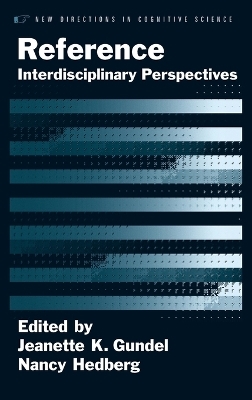
Reference
Oxford University Press Inc (Verlag)
978-0-19-533163-9 (ISBN)
The ability to produce and understand referring expressions is basic to human language use and human cognition. Reference comprises the ability to think of and represent objects (both real and imagined/fictional), to indicate to others which of these objects we are talking about, and to determine what others are talking about when they use a nominal expression.
The articles in this volume are concerned with some of the central themes and challenges in research on reference within the cognitive sciences - philosophy (including philosophy of language and mind, logic, and formal semantics), theoretical and computational linguistics, and cognitive psychology. The papers address four basic questions: What is reference? What is the appropriate analysis of different referring forms, such as pronouns vs. full noun phrases, demonstrative vs. personal pronouns, and overt vs. null/zero pronominal forms? Some of the papers assume and build on existing theories, such as Centering Theory and the Givenness Hierarchy framework; others propose their own models of reference understanding or production.
The essays examine reference from a number of disciplinary and interdisciplinary perspectives, informed by different research traditions and employing different methodologies. While the contributors to the volume were primarily trained in one of four represented disciplines - computer science, linguistics, philosophy and psychology, and use methodologies typical of that discipline, each of them bridges more than one discipline in their methodology and/or their approach.
Jeanette Gundel is Professor of Linguistics, University of Minnesota. Nancy Hedberg is Professor of Lingusitics, Simon Fraser University.
Contributors
1.: Jeanette Gundel and Nancy Hedberg: Introduction
I. What is Reference?
2.: Kent Bach: On Referring and Not Referring
II. What is the Appropriate Linguistic Analysis of Different Forms of Referring Expression?
3.: Barbara Abbott: Issues in the Semantics and Pragmatics of Definite Descriptions
4.: Gregory Ward: Equatives and Deferred Reference
III. How is Reference Resolved?
5.: Andrew Kehler: Rethinking the SMASH Approach to Pronoun Interpretation
6.: Sungryong Koh, Anthony Sanford, Charles Clifton, Jr., and Eugen Dawydiak: Good-enough Representation in Plural and Singular Pronominal Reference: Modulating the Conjuntion Cost
IV. How do we Select Forms of Referring Expression?
7. The Overlapping Distribution of Personal and Demonstrative Pronouns: Donna K. Bryon, Sarah Schmidt, and Michael K. Tanenhaus:
8.: Maite Taboada: Reference, Centers, Transitions in Spoken Spanish
9.: Massimo Poesio: Linguistic Claims Reformulated in Terms of Centering: A Re-examination using Parametic Cb-Tracking Techniques
10.: Alan Granham and Wind Cowles: Looking Both Ways: The JANUS Model of noun Phrase Anaphor Processing
| Erscheint lt. Verlag | 21.2.2008 |
|---|---|
| Reihe/Serie | New Directions in Cognitive Science |
| Zusatzinfo | numerous tables |
| Verlagsort | New York |
| Sprache | englisch |
| Maße | 236 x 157 mm |
| Gewicht | 570 g |
| Themenwelt | Geisteswissenschaften ► Psychologie ► Allgemeine Psychologie |
| Geisteswissenschaften ► Psychologie ► Verhaltenstherapie | |
| Geisteswissenschaften ► Sprach- / Literaturwissenschaft ► Sprachwissenschaft | |
| ISBN-10 | 0-19-533163-X / 019533163X |
| ISBN-13 | 978-0-19-533163-9 / 9780195331639 |
| Zustand | Neuware |
| Haben Sie eine Frage zum Produkt? |
aus dem Bereich


